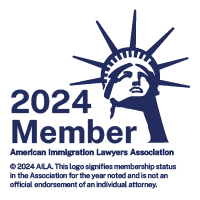E-1/E-2 Visas
Traders and investors, their families, and qualified employees of foreign companies may be eligible to enter and work in the United States using an E visa if they are nationals of a country that has an appropriate treaty of commerce and navigation or other qualifying agreement with the U.S. E visas have certain advantages over other possibly relevant visas, such as L visas for intra-company transferees, since E visa holders need not maintain a business outside the United States and E visas can be renewed indefinitely. The U.S. Department of State lists countries whose nationals may be eligible for an E visa in the Foreign Affairs Manual (FAM).
If the requisite treaty exists, a foreign national who desires to come to the United States in order to carry on substantial trade principally between his/her country of nationality and the U.S. may be eligible for an E-1 Treaty Trader visa. A foreign national who comes to the United States in order to develop and direct the operations of a commercial enterprise in which he/she has invested, or is actively in the process of investing a substantial amount of capital may qualify for an E-2 Treaty Investor visa.
An E-1 Treaty Trader visa requires that:
- A requisite treaty exists between the applicant’s country of nationality and the United States;
- The individual and/or business possess the nationality of the treaty country;
- The proposed activities constitute trade within the meaning of immigration laws;
- The trade will be substantial;
- The trade will principally be between the United States and the treaty country;
- The applicant, if an employee, is destined for an executive/supervisory position or possesses skills essential to the firm’s operation in the United States;
- The applicant intends to depart the United States when the E-1 status terminates.
Documents necessary to support an application for an E-1 visa include, but are not limited to:
- Proof of nationality of the business and/or the individual;
- Bills of lading or other documentation of international trade;
- Contracts for trade;
- Proof that more than 50% of the business’ trade is with the U.S.;
- Proof that the volume of trade is substantial.
An E-2 Treaty Investor visa requires that:
- A requisite treaty exists between the applicant’s country of nationality and the United States;
- The individual and/or business possess the nationality of the treaty country;
- The applicant has invested or is actively in the process of investing;
- The investment is in a real and operating commercial enterprise;
- The investment is substantial;
- The investment is more than a marginal one solely for earning a living;
- The applicant is in a position to “develop and direct” the enterprise;
- The applicant, if an employee, is destined for an executive/supervisory position or possesses skills essential to the firm’s operations in the United States;
- The applicant intends to depart the United States when the E-2 status terminates.
Documents necessary to support an application for an E-2 visa include, but are not limited to:
- Proof of nationality of the business and/or the individual;
- Evidence of the investment in the United States business;
- Evidence that the investment is substantial;
- Evidence demonstrating that the investment is more than marginal;
- Evidence that the investment is for more than solely earning a living for the investor; and
- Proof that the investor is coming to the United States to develop and direct the enterprise, or if the applicant is an employee of an E company, proof that the employee has the appropriate nationality and will be working in the United States in an executive, managerial, supervisory position, or has special expertise that makes him/her essential to the enterprise.
The E visa can be granted for up to five (5) years and can be extended as long as the E requirements are met. Admission to the United States in E visa status is usually granted in one (1) or two (2) year increments.



